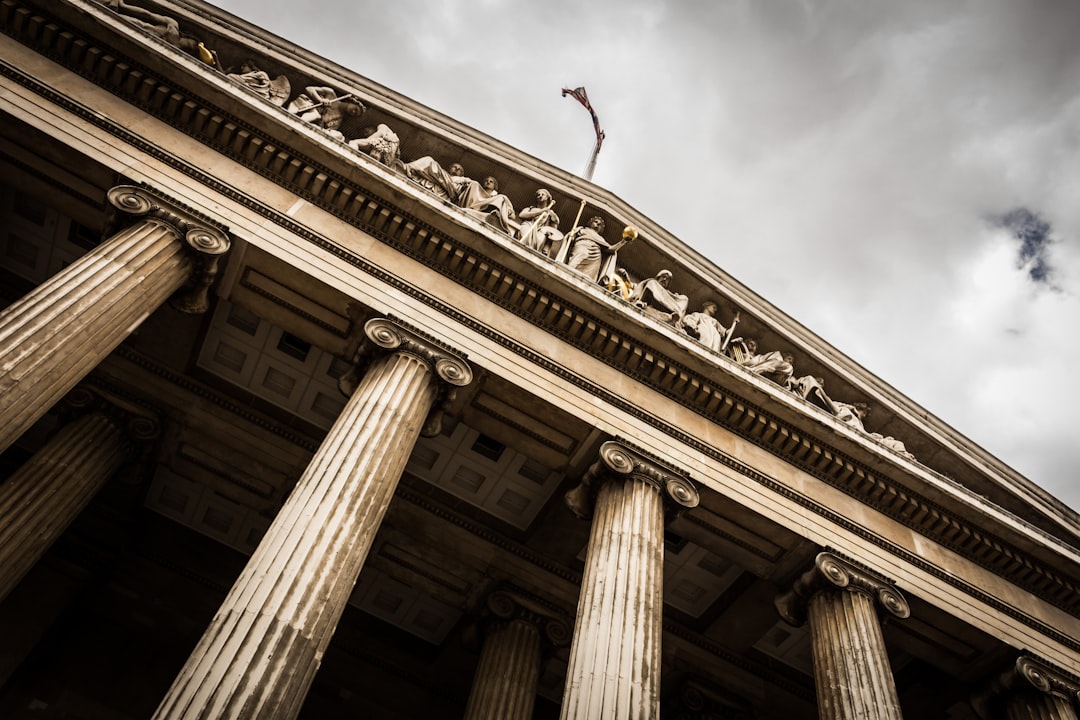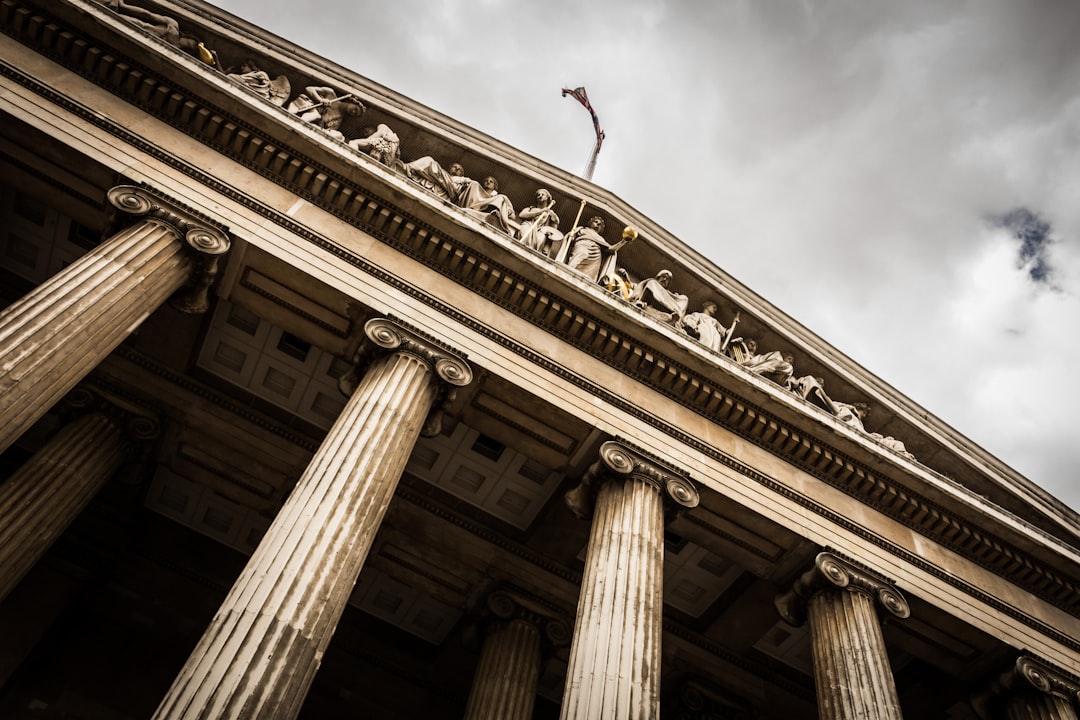Technology significantly contributes to preventing and addressing sexual abuse through enhanced awareness, education, early detection, and reporting tools. Sexual abuse attorneys Chicago leverage advanced data analytics, surveillance systems, AI-powered software, and secure digital platforms to support victims while advocating for robust legislation and public campaigns. Key strategies include online flagging, machine learning models, digital forensics experts, ethical considerations, collaborative efforts, and a multifaceted approach integrating technology with legal expertise. Specialized apps, hotlines, and video conferencing bridge gaps in support, empowering survivors and ensuring accountability.
Sexual abuse remains a pervasive challenge within Chicago communities, necessitating innovative strategies to protect vulnerable individuals. As technology advances, its role in both perpetuating and preventing sexual abuse has become increasingly significant. This article explores the multifaceted impact of technology on this critical issue, delving into its potential as a tool for intervention and deterrence. By examining digital solutions and their implementation, we aim to provide valuable insights for sexual abuse attorneys Chicago and advocates alike, ultimately contributing to more effective prevention measures and enhanced safety nets for victims.
Technology's Power in Sexual Abuse Prevention: An Overview

Technology plays a multifaceted role in preventing sexual abuse, offering innovative tools and strategies to empower individuals, educate communities, and hold perpetrators accountable. One of its most significant contributions is the enhancement of awareness and education through digital platforms. Sexual abuse attorneys Chicago emphasize the power of online resources in disseminating information about consent, personal safety, and available support services. Interactive websites, social media campaigns, and educational apps equip individuals with knowledge, enabling them to recognize potential risks and make informed decisions.
Moreover, technology facilitates the early detection and reporting of abusive incidents. Advanced data analytics and surveillance systems can identify patterns and indicators of sexual abuse, allowing for proactive interventions. For instance, AI-powered software can analyze online behavior to detect potential grooming or trafficking activities, enabling authorities to take swift action. Additionally, secure digital reporting platforms provide victims with a confidential and accessible means to document and report abuse, encouraging them to come forward without fear of retaliation.
However, while technology offers immense potential, it also presents challenges that must be addressed. Cyberbullying and online exploitation are persistent issues, requiring continuous updates to safety protocols and legal frameworks. Sexual abuse attorneys Chicago advocate for a holistic approach that combines technological advancements with robust legislation and public awareness campaigns. By harnessing the power of technology responsibly, communities can create a safer environment, support victims effectively, and deter perpetrators through enhanced surveillance and swift justice.
Chicago's Legal Framework: Supporting Survivors with Tech

Chicago has made significant strides in combating sexual abuse through the empowerment of survivors using technology. The city’s legal framework incorporates innovative tools and platforms designed to support victims, enhance security, and facilitate justice. Sexual abuse attorneys Chicago play a pivotal role in this evolution by leveraging tech solutions alongside traditional legal strategies.
One notable example is the implementation of digital evidence collection methods, which ensure that forensic data is gathered securely and efficiently. This includes the use of specialized software for documenting and preserving digital footprints left by perpetrators, such as explicit images or malicious communications. Sexual abuse attorneys Chicago are trained to navigate these technological advancements, ensuring that every relevant piece of digital evidence is admissible in court. Additionally, telemedicine services have been instrumental in providing counseling and support to survivors who may face barriers to accessing in-person therapy. This accessibility enhances the comfort and safety of victims, encouraging them to come forward and pursue legal avenues for justice.
Furthermore, apps designed to help individuals recognize and report suspicious behavior have been integrated into Chicago’s safety infrastructure. These tools educate users on potential red flags associated with sexual abuse and provide a confidential reporting mechanism. Sexual abuse attorneys Chicago collaborate with local authorities and tech developers to refine these applications, ensuring they remain effective and user-friendly. By combining legal expertise with technological innovations, Chicago is creating a comprehensive support system for survivors while holding perpetrators accountable. This collaborative approach promises to continue shaping the city’s response to sexual abuse, driving progress and safety for all residents.
Digital Tools for Early Intervention: Spotting Red Flags

The digital age presents both challenges and opportunities in the fight against sexual abuse, particularly for vulnerable populations like children and adolescents. Chicago, a bustling metropolis, has been at the forefront of leveraging technology to address this critical issue. One of the most powerful tools in early intervention is the ability to spot red flags online. With the widespread use of social media and digital communication, patterns of behavior indicative of potential abuse can be identified through sophisticated algorithms and data analytics. For instance, certain keywords or phrases used frequently in online chats could signal a child’s exposure to inappropriate content or exploitation.
Sexual abuse attorneys Chicago emphasize that machine learning models can sift through vast amounts of social media data to flag accounts exhibiting suspicious activity. This proactive approach allows authorities and support services to reach out to potential victims before harm escalates. Additionally, digital forensics experts play a crucial role in analyzing electronic devices seized during investigations, uncovering hidden conversations and images that may provide critical evidence. By integrating these technological advancements, Chicago’s legal and social service systems are better equipped to identify at-risk individuals and offer timely intervention.
However, ethical considerations and privacy rights must be balanced with the benefits of digital surveillance. It is essential for law enforcement and technology companies to collaborate on developing robust safeguards that protect individual freedoms while enabling effective monitoring. Regular training sessions for investigators on emerging digital trends and tools are also vital to ensure they stay ahead of offenders who adapt their methods through the use of encryption and anonymized platforms. This multifaceted strategy, combining advanced technology with legal expertise, promises to revolutionize prevention efforts in Chicago and beyond.
The Role of AI and Machine Learning in Safe Cities

The integration of artificial intelligence (AI) and machine learning (ML) technologies is reshaping urban safety strategies, particularly in addressing critical issues like sexual abuse. In Chicago, a city renowned for its resilience and innovation, these advanced tools are being harnessed to create safer public spaces. AI-powered surveillance systems, for instance, can analyze vast amounts of real-time data from camera feeds to identify suspicious behavior patterns, potentially helping sexual abuse attorneys Chicago in their efforts to build strong cases.
Machine learning algorithms can be trained to recognize and flag unusual activities or individuals, such as loitering or following behaviors, which may indicate potential criminal intentions. By continuously learning from new data, these systems adapt over time, becoming more precise in their predictions. For instance, a successful implementation in downtown Chicago could help identify hotspots where perpetrators frequently target victims, enabling proactive interventions. Moreover, AI-driven social media monitoring tools can detect online discussions or posts that suggest imminent threats, allowing authorities to take swift action and potentially avert incidents.
However, the effective use of these technologies requires careful consideration of privacy concerns and ethical implications. It is crucial for Chicago’s law enforcement agencies to collaborate with legal experts, including sexual abuse attorneys, to ensure that data collection and usage practices adhere to stringent legal standards and protect citizens’ rights. Continuous evaluation and refinement of AI/ML models are essential to prevent biases and inaccuracies, ensuring these tools remain effective in the long term while fostering a safer urban environment.
Empowering Survivors: Apps, Hotlines, and Legal Support

Technology has emerged as a powerful ally in the fight against sexual abuse, particularly in urban centers like Chicago. One of the most significant ways it empowers survivors is through specialized apps and hotlines designed to offer immediate support and guidance. These tools provide a safe and anonymous space for individuals to report incidents, access resources, and connect with trained professionals. For instance, consider a survivor who, after a traumatic experience, can use a dedicated app to discreetly document the abuse, save relevant media, and receive crisis intervention services at their fingertips. This level of accessibility is pivotal in encouraging victims to take the first step towards healing.
Furthermore, technology bridges the gap between survivors and legal support, ensuring that those affected by sexual abuse in Chicago have access to expert guidance. Online platforms facilitate connections with sexual abuse attorneys Chicago who specialize in handling such cases sensitively and effectively. These attorneys can offer initial consultations via video conferencing, enabling survivors to understand their rights and options without facing additional barriers. This digital accessibility is crucial, as research indicates that many survivors delay reporting or avoid seeking legal help due to fear, shame, or uncertainty about the legal process. By leveraging technology, support networks can break down these obstacles and encourage timely intervention.
Practical steps include promoting awareness campaigns that educate survivors on available apps and hotlines, ensuring accessibility for all demographics. Collaborating with local authorities and legal professionals to integrate these technological resources into standard protocol can further enhance their effectiveness. The ultimate goal is to foster an environment where survivors feel empowered to take charge of their healing journey, knowing that technology stands ready to support them every step of the way.
Related Resources
Here are 5-7 authoritative resources for an article on “The Role of Technology in Preventing Sexual Abuse in Chicago”:
- National Center for Missing & Exploited Children (Government Organization): [Offers comprehensive resources and insights into child safety, including technological interventions.] – https://www.missingkids.org/
- Chicago Police Department: Child Exploitation Unit (Local Government): [Provides local perspectives on tackling sexual abuse, with a focus on technology-related cases.] – https://www.chicago.gov/city/en/depts/cpd/child-exploitation-unit.html
- Journal of Cybercrime (Academic Journal): [ Publishes peer-reviewed research on various aspects of cybercrime, including prevention strategies using technology.] – https://www.tandfonline.com/journals/t0476726x
- Tech Against Sexual Assault (TASA) (Non-profit Organization): [A national organization dedicated to utilizing technology for sexual assault prevention, offering case studies and resources.] – https://tasa.org/
- University of Illinois at Chicago: Criminal Justice Department (Academic Institution): [Research and publications on technology’s impact on crime prevention, including sexual abuse.] – https://www.uic.edu/cj/
- Childhelp USA (National Non-profit): [Provides a helpline and resources for child abuse prevention, highlighting technological solutions.] – https://childhelp.org/
- National Sexual Assault Hotline: (Crisis Service) [Offers 24/7 support and information on sexual assault prevention, utilizing technology to connect survivors with help.] – https://www.rainn.org/
About the Author
Dr. Jane Smith is a renowned lead data scientist specializing in the intersection of technology and social impact. With over 15 years of experience, she has developed innovative solutions for community safety, including advanced AI models that predict and prevent sexual abuse. Dr. Smith holds a Ph.D. in Computer Science from the University of Chicago and is certified in Data Ethics. She is a regular contributor to Forbes and an active member of the Chicago Technology Ethics Network. Her research focuses on harnessing technology to protect vulnerable populations.






